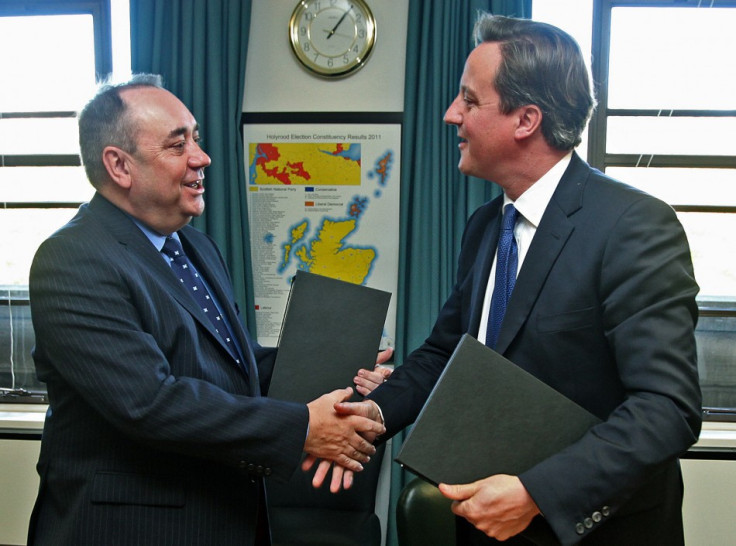Beyond 2014: Shaping the Future of United Kingdom [BLOG]

Over the next couple of years, the Scottish independence referendum is going to continue to percolate through the media and public consciousness. It is already an inescapable part of the daily news in Scotland, and will feature increasingly across the UK as the day of reckoning draws near.
For unionists and nationalists alike, the task of winning the referendum will be first and foremost in their minds. Yet far-sighted unionists are already thinking about the next big challenge: if the 'No' campaign wins and the union is preserved, what then?
It isn't a trivial question - or rather, questions. For it can be posed in two different ways: what will happen in the aftermath of the referendum, and what specifically will unionists need to do in the aftermath of the referendum?
The first question can only really be answered with speculation at this point - eighteen months of hard campaigning lie between us and the result, and thus there are an unknowable amount of possible factors we simply can't foresee.
The second question is simpler - and much more than idle speculation. Victory in 2014 will put unionism on the front foot in the constitutional struggle for the first time in a long time, and it is an opportunity that must not be squandered.
The UK's constitutional balance needs stabilising. So far, devolution has fulfilled every dire prediction that its opponents threw at it, from the Seventies to the Nineties. It has neither proved to be a one-off change to the constitution (quite the reverse) nor put paid to the various separatist parties (again, quite the reverse). Instead, the 'process' of devolution has accelerated far beyond the intent of its instigators.
This in itself isn't a problem. The problem is that since nobody planned on devolution taking this course, nobody has articulated - or dared to articulate - an 'end goal' for devolution to which they can be held accountable. Instead we have arrived in a position where the ink has not yet dried on the last tranche of powers leaving Westminster before the 'debate' begins on the next set: a one-way centrifugal process in which nobody is effectively defending the role of Westminster in the devolved areas of the UK.
Those who oppose any given extension of devolution are cast as dinosaurs, hopelessly pitting themselves against the tide of history. Yet what those pro-union devolutionaries who quote the oft-repeated line about devolution being "a process, not an event" must realise is that even as a process, devolution will end. The question is whether it ends with the dissolution of the UK or before it, and if before it whereabouts.
Starting now, unionists need to work out an end point for devolution, and the proper balance of powers between Westminster and the devolved governments. This must include a solution to the 'West Lothian Question' (wherein Scottish MPs can vote on matters affecting England which are devolved in Scotland), which still poses a serious long-term risk to the UK. In my view a solution should also defend a proper role for Westminster and pan-British policy-making, lest the country get turned into a sort of alliance.
Finally, such a solution must involve legislative safeguards, such as Canada's Clarity Act, to make challenging it difficult to achieve. The current model, where a devolved settlement lasts until the nationalists get back into office or need to be bought off electorally, is unsustainable.
It is important to make this case because it is anything but certain that unionists will take this course of action. It would be very easy to become focused entirely on winning the referendum, and then allow the victory (all these scenarios are predicated on victory) to foster a sense of complacency. There might even be a simple revival of the "more powers" mantra. This would achieve little, except to turn a potential turning point into a temporary respite.
The other great risk is that unionism, balkanised as it is between the three 'main' UK parties, will fail to remain united enough to agree a reform, let alone pass one. After the referendum a return to politics as usual will be very tempting as the elections come thick and fast: the Westminster and Northern Ireland Assembly elections in 2015 followed by the Scottish and Welsh (and possibly Northern Irish) elections in 2016. It is very easy to see how the Conservatives, Liberal Democrats and Labour could succumb to the temptation to turn on each other once the existential threat to the Union appears to have passed.
The time to overcome this temptation is now. Whether in parliamentary groups or think-tanks, unionists from left and right need to start working together on finding a sustainable constitutional future for the UK that can be quickly put into action in 2014 and effectively pitched to the voters of Britain. Otherwise a hard-won victory in 2014 may prove very hollow indeed.
Harry Hill is the author of the popular Conservative blog Dilettante
© Copyright IBTimes 2025. All rights reserved.





















